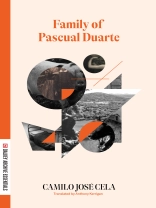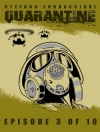Confined to a prison cell, thrice-murderer Pascual Duarte recounts his journey from a violent childhood to a life of pain and misfortune; juxtaposing tableaus of country poverty against scenes of bare brutality, Nobel laureate Camilo José Cela crafts a powerful meditation on cruelty and anomie.
The Family of Pascual Duarte follows his upbringing in the poor Spanish province of Extremadura to his eventual imprisonment—and impending death sentence. Death permeates Duarte’s world: his father’s grotesque death to rabies, his young brother’s drowning in an oil vat, and the loss of his children. But it is his wife’s sudden death that condemns him to the darkest path when, losing all faith and driven by blind revenge, he kills her souteneur. Now an alien to the world around him, Pascual Duarte resigns himself to his bloodied fate—yet never gives up his search for peace.
Camilo José Cela has been recognized as one of the pioneers of Spanish literary realism, and his masterwork The Family of Pascual Duarte proves the power of his prose. The novel, which birthed the transgressive and groundbreaking tremendismo movement, roils with emotion and unflinching inhumanity, painting the Spanish countryside in bloodshed, eroticism, and an unshakeable feeling of grief. Blending the political with the personal with the philosophic, the result is an unparalleled exploration of the fraught relationship between man and society, and the past’s inescapable hold on the present.
Über den Autor
Camilo José Cela (1916-2002) was a Spanish novelist, poet, essayist, and raconteur associated with the Generation ’36 movement, which was a group of Spanish artists working during the Spanish Civil War. In 1943, he became a censor in Francoist Spain, during which his best-known works were produced and were often scrutinized by fellow censors. Cela was awarded the 1989 Nobel Prize in Literature ‚for a rich and intensive prose, which with restrained compassion forms a challenging vision of man’s vulnerability.‘ In 1994 he was awarded the Premio Planeta, and in 1996 was ennobled King Juan Carlos I, who gave Cela the hereditary title of Marquess of Iria Flavia in the nobility of Spain. Some of Cela’s notable works include The Hive, Boxwood, Those Passing Clouds, The Galician and Christ Versus Arizona.












